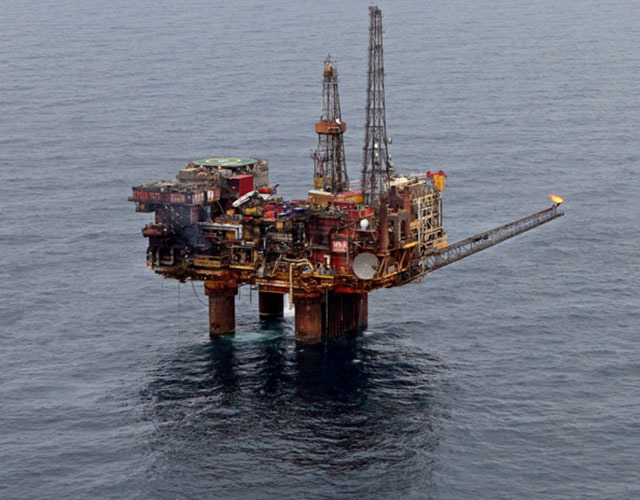
UK oil and gas explorers face some very difficult trends that threaten the long term future of the North Sea. Wells are simply not finding enough new resources.
These problems set in long before the recent oil price declines and will not be easily resolved if and when oil prices recover. Explorers need to adopt bold new strategies if they are to address the fundamental issue of small discovery volumes.
Lack of investment is not the issue.
Over five years to 2013, the UK industry spent US$13.9 billion on exploration and appraisal work.
This represents US$3.86 per barrel of oil equivalent (boe) produced in the same period, which is close to the average rate of exploration investment by leading companies worldwide.
All this drilling is finding very little oil and gas. During 2012-2014, 86 offshore exploration wells added just 166 million barrels of oil equivalent (mmboe); a reserve replacement ratio of just 10%.
The discovery rate of less than 2 mmboe per well, is an order of magnitude less than the volumes required for commercial offshore exploration. Whether this reflects poor prospect choice or fundamental lack of subsurface potential is open to question.
The modest results reveal a systemic failure to predict prospect sizes and/or risks rather than merely a statistical aberration given the sizeable number of wells drilled. Explorers are evidently not getting the well results that their geologists planned. Better data access and knowledge sharing could help fix this.
The recent trend is particularly worrying for its future implications. Yet-to-find assessments based on the sum of undrilled prospects quantified in the same flawed manner hugely overstate the UK’s exploration potential.
Wood Mackenzie has used an alternative method, based on trend projection, to estimate that UK exploration will add 3.7 billion boe by 2035. Even this yet-to-find potential would slip, to just 1.1 billion boe, if the trend of 2012-2014 was to continue over the next 20 years.
The past three years are a wake up call for radical change. The industry cannot continue to drill similar prospects in the hope of a different outcome.
It must either 1) cease most of its exploring; or 2) shift focus to higher-impact plays.
Option 2 requires larger prospects, but with more geological risk and less chance of success. In a mature province such as the UK, these opportunities mainly exist in new and overlooked plays and there can be no guarantees that these will be successful.
Dr Andrew Latham is vice president, Exploration Service at Wood Mackenzie. He has more than 20 years experience assisting companies in the development of their exploration strategies and currently leads Wood Mackenzie’s Exploration Service.
Recommended for you
